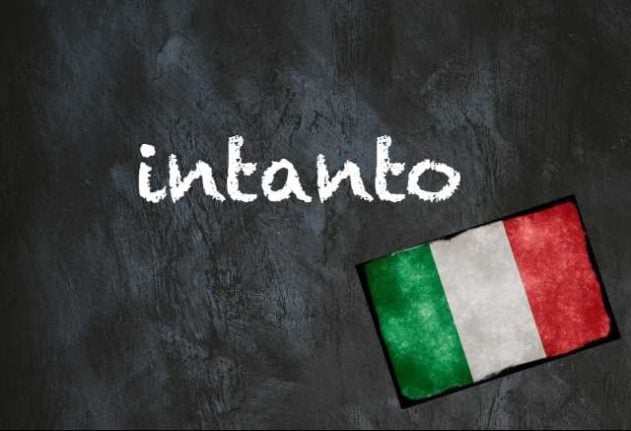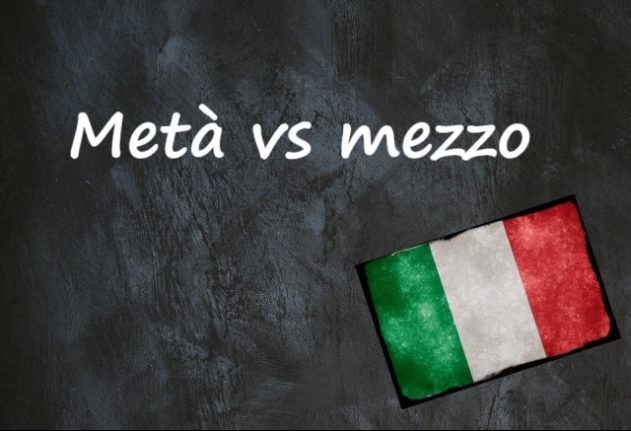Intanto is a word you’ll hear crop up often in Italian conversations.
Its most common English translations are ‘meanwhile’, ‘in the meantime’, ‘for the time being’, or ‘until then’.
Luisa arriverà tra cinque minuti. Intanto entra e mettiti a tuo agio.
Luisa will be here in five minutes. In the meantime, come in and make yourself comfortable.
L’anno prossimo mi laureerò come medico, ma intanto lavoro come cameriera.
Next year I’ll graduate as a doctor, but for the time being I’m working as a waitress.
The dictionary points out that when used as a translation for ‘meanwhile’, intanto can have a somewhat adversarial quality, highlighting the contrast between two situations.
Io sto preparando una cena per dieci persone e intanto te ne stai lì a guardare la TV.
I’m preparing a meal for ten people, meanwhile you sit there watching TV.
Relatedly (talking about highlighting contrasts), intanto is sometimes used to mean ‘however’:
Finally, intanto can mean ‘for starters’, ‘first of all’, or ‘for one thing’.
Allora, intanto, io sono cittadina americana.
First of all, I’m an American citizen.

Intanto, a te quella mercedes non serve.
For starters, you don’t need that Mercedes.
Intanto sei sempre in ritardo.
For one thing, you’re always late.
Try it out in a conversation this week – and in the meantime, have a browse of our word of the day archive to see what else you can learn.
Do you have an Italian word you’d like us to feature? If so, please email us with your suggestion.
Don’t miss any of our Italian words and expressions of the day: download our new app (available on Apple and Android) and then select the Italian Word of the Day in your Notification options via the User button.



 Please whitelist us to continue reading.
Please whitelist us to continue reading.
Member comments